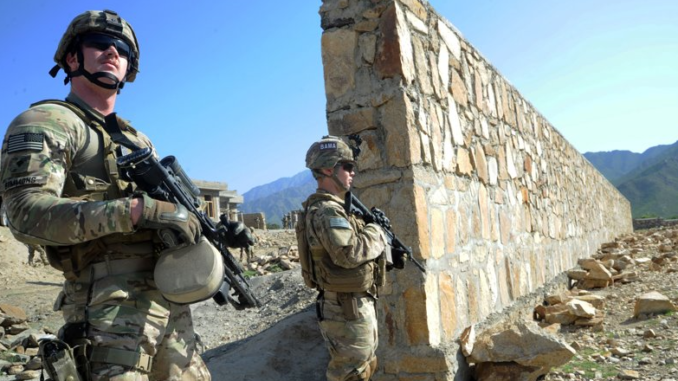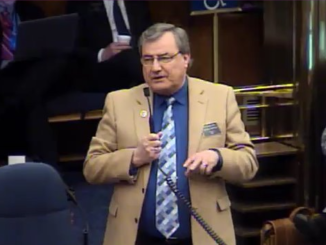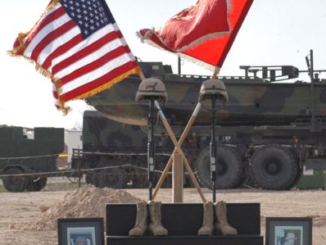
President Trump signed an Executive Order today that allows children to stay with parents who are caught illegally crossing the border. The issue of separating children from their parents has suddenly become a hot topic and has resulted in heavy criticism for the White House. Yet, despite calls from critics for Trump to take action, Democrats apparently still aren’t satisfied with the President’s order. Former Democratic presidential candidate and current Vermont senator Bernie Sanders expressed his displeasure:
“In response to the overwhelming public outrage at his policy of tearing children away from their parents at the border, this administration thinks the appropriate response is to indefinitely detain families.”
Is anything short of amnesty or open borders acceptable to some of these folks?
I’m sure I’m not alone in wondering if we’ll ever secure our borders. Wall or no wall – and aside from those who believe in open borders – it’s obvious that something must be done to stem the tide of illegals entering the country. But how?
I don’t pretend to have all the answers, but could it be that we need to revisit the idea of putting troops on the border?
According to a 2017 report, we have about 200,000 military personnel stationed in 177 countries. We have a southern border that is 1,954 miles long. For our purposes here, let’s just round that to 2,000 miles. Now, let’s suppose that we can spare just 10% of those we’ve sent overseas. That’s 20,000 troops that could be made available for border security.
If we put three soldiers nearly every mile along the border, that would be 6,000 soldiers. With a shift of eight hours, that would be three shifts for every 24 hour period— a total of 18,000 troops. And we’d still have 2,000 to spare.
Of course, the idea of using military personnel on the border isn’t a new one. Not only have troops been sent to the border in the past, but just two months ago President Trump expressed a desire to send about 2,000 to 4,000 of them to assist the nearly 20,000 border patrol agents that already exist.
In making such a suggestion, there’s an ongoing debate in regards to the Posse Comitatus Act of 1878. In a nutshell, it “prohibits the use of U.S. military forces to perform the tasks of civilian law enforcement such as arrest, apprehension, interrogation, and detention unless explicitly authorized by Congress.” Yet, I think it’s worth looking at. It seems clear that Congress has the power to authorize such things.
Instead of paying our military to police the world, why not put some of them to work securing our own borders? Not only would these 20,000 men and women then be here at home, but they’d be reunited with their own families in the process.
Sources:
- http://www.foxnews.com/politics/2018/06/20/white-house-considering-executive-action-to-prevent-family-separations-at-border.html
- http://www.foxnews.com/politics/2018/06/20/democrats-slam-trumps-executive-order-for-detaining-families-indefinitely.html
- http://www.businessinsider.com/us-military-personnel-deployments-by-country-2017-3
- http://www.pewresearch.org/fact-tank/2017/08/22/u-s-active-duty-military-presence-overseas-is-at-its-smallest-in-decades/
- https://www.youtube.com/watch?v=Mlm0Ae9UYXE
- https://www.abc15.com/news/state/trump-2000-4000-troops-needed-for-us-mexico-border-security
- https://www.brookings.edu/blog/fixgov/2017/07/07/struggling-to-hang-on-to-20k-officers-border-patrol-looks-to-hire-5k-more/
- https://www.usatoday.com/story/news/politics/border-issues/2017/09/19/wall-how-long-us-mexico-border/676001001/
- https://www.encyclopedia.com/social-sciences-and-law/law/law/posse-comitatus-act
- https://www.thoughtco.com/posse-comitatus-act-military-on-border-3321286





